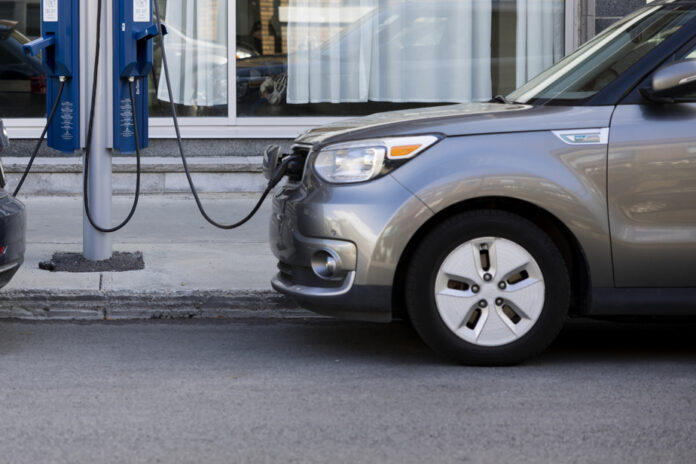In the UK, insurance companies like Aviva have stopped insuring electric vehicles, while others have significantly increased premiums. What about in Quebec?
An article from the Guardian of London published on September 30 says that the company Aviva has stopped insuring the Tesla Model Y. The driver managed, not without difficulty, to find a new insurer, but the premium is steep, at nearly 5,000 pounds sterling (8,300 Canadian dollars) per year. Other electric vehicle owners in the United Kingdom have experienced a similar situation with other insurers, according to the same report.
“The situation described only applies to the United Kingdom, not to Canada,” says Kelsie Ludlow, external communications manager at Aviva Canada, in an email.
“An electric vehicle can cost more to insure depending on the situation,” says Louis-Thomas Labbé, chairman of the board at Gallagher GPL, an insurance firm. He’s been driving a Tesla himself for 10 years. What he costs more in insurance, he says, is amply offset by the savings on consumption and maintenance expenses.
According to him, the higher cost of insurance for electric vehicles is explained by the fact that the model is expensive to start with, parts are difficult to find and delivery times are long. There is also a shortage of mechanics, making repairs take longer. These delays have repercussions on the rental of the replacement car, which lasts longer and is more expensive.
But, how much more expensive? he was asked.
Daniel Breton, spokesperson for Electric Mobility Canada, electric car lobby, differs in opinion.
According to the spokesperson for the pressure group, all sorts of myths surround electric vehicle insurance. For example, stories of batteries that catch fire easily or collisions that automatically result in a total loss due to the condition of the battery. “This is not only a categorical statement, it is false, absolutely false,” he lets it be known.
“The latest statistics indicate that a gasoline vehicle is 29 times more likely to catch fire than an electric vehicle,” he says, citing Swedish data reported by the publication Motor Trend last July.
“The challenge is the training of mechanics, repairers and body repairers. Insurance companies are working with manufacturers and even dealers to set up, with the joint committee, training programs for mechanics and repairers of electric vehicles. This is currently being done,” said Mr. Breton.
In short, “we cannot say that it is black or white, that it will necessarily cost more,” he maintains.
He suggests that consumers take out insurance with companies that specialize in it. Insurers like Desjardins even offer a discount on the insurance premium for electric vehicles.
“No, it is not more expensive to insure an electric vehicle than a combustion vehicle,” replies Benoit Loyer, lawyer and senior advisor at Desjardins damage insurance.
As for the higher cost of repairs, Mr. Loyer argues that it is the technology on board the vehicle that increases the amount of claims, not the fact that the car is electric.
In some windshields, he gives as an example, a type of camera is placed in the console at the top which plays the role of intelligent cruise control. When you change the windshield, you have to recalibrate the system. The bill is accordingly, replacing this type of windshield costs $1500-$2000 instead of the $800 for a regular windshield.
Statistics Canada, which tracks the evolution of new vehicle registrations, calculates that 21% of new vehicles registered in Quebec during the 2nd quarter of 2023 are net zero emissions or electric hybrids or even plug-in electric hybrids.















